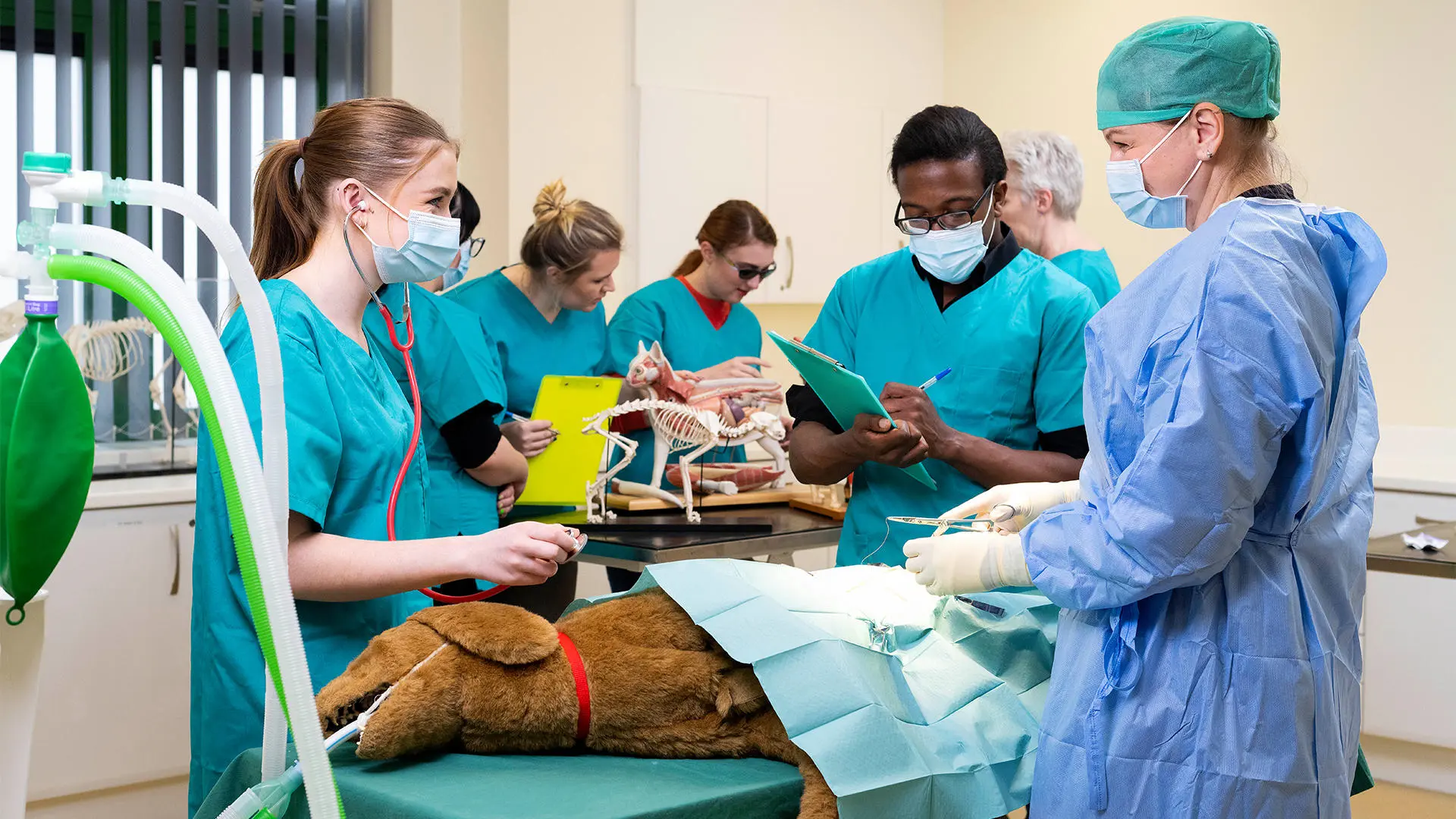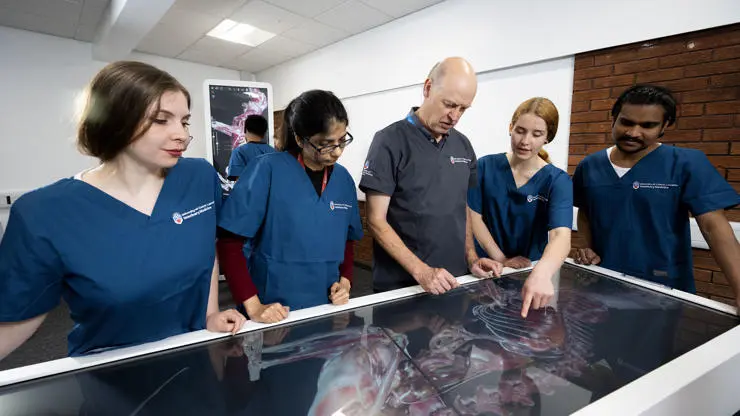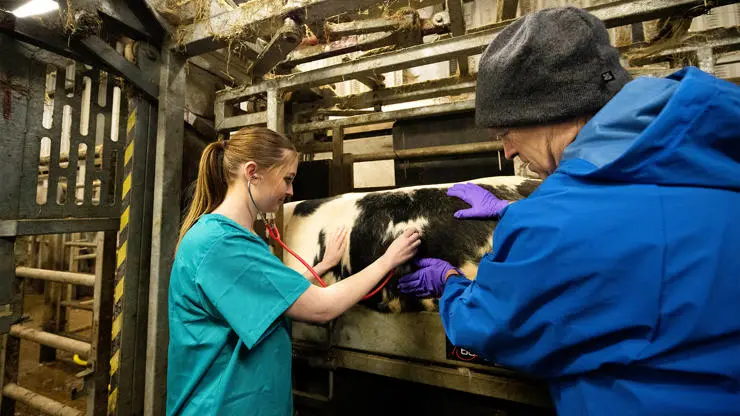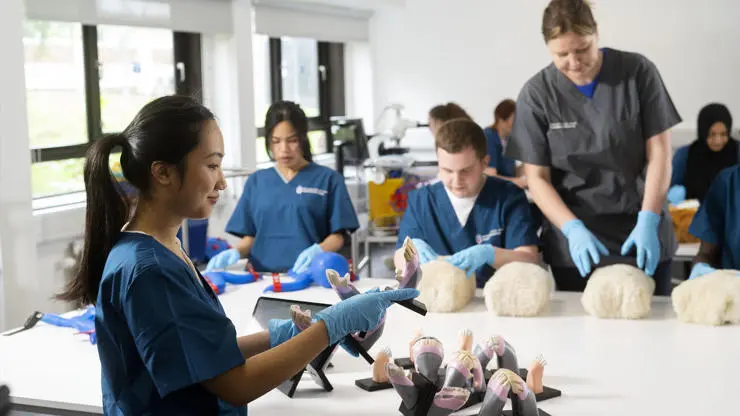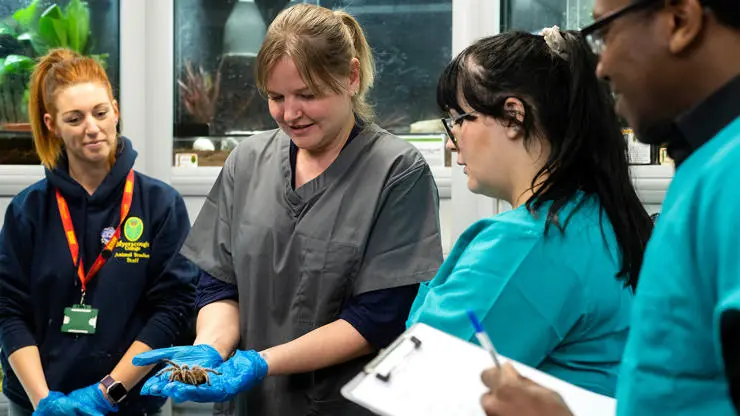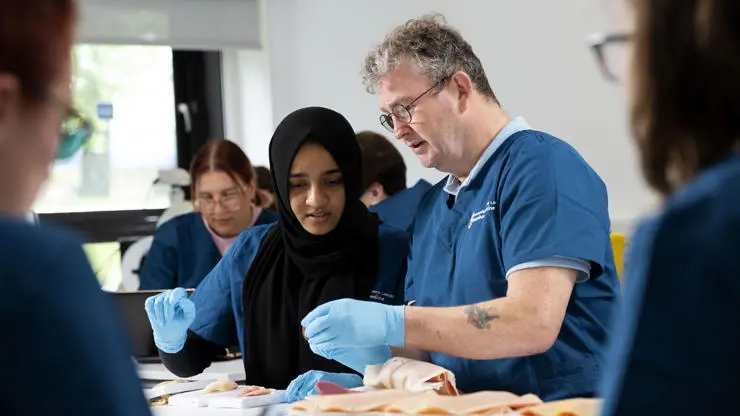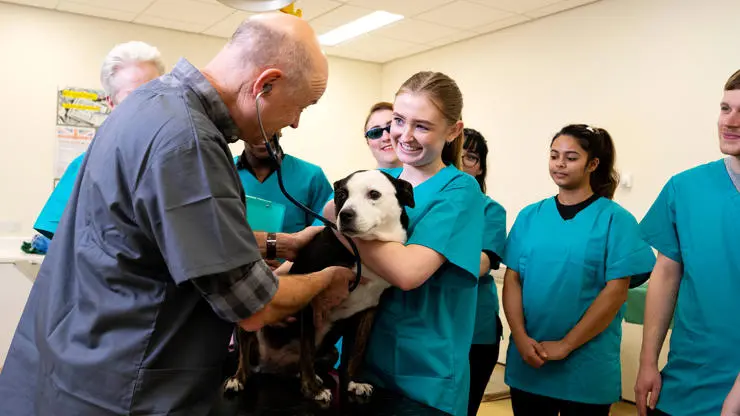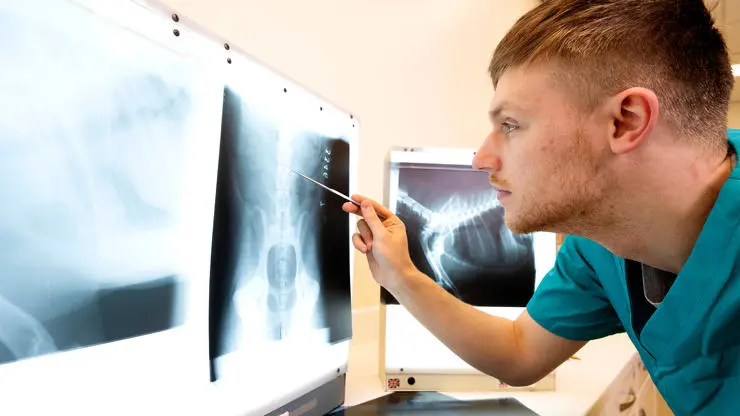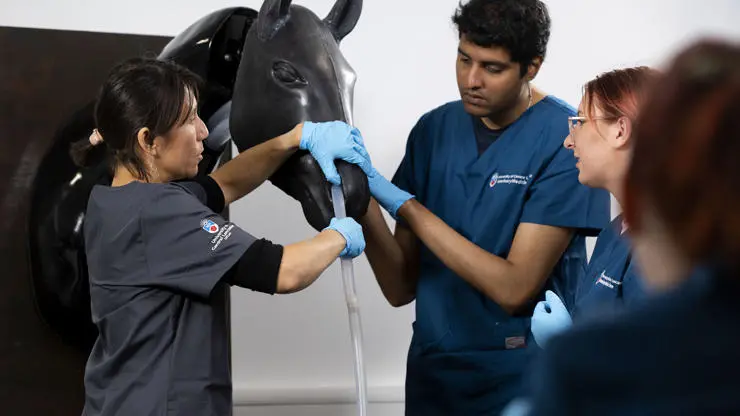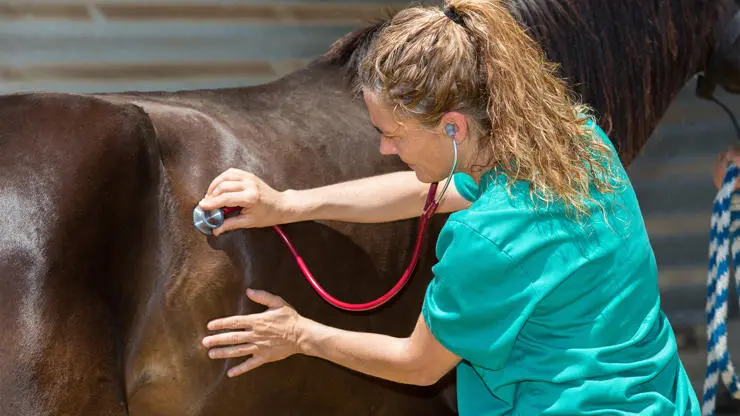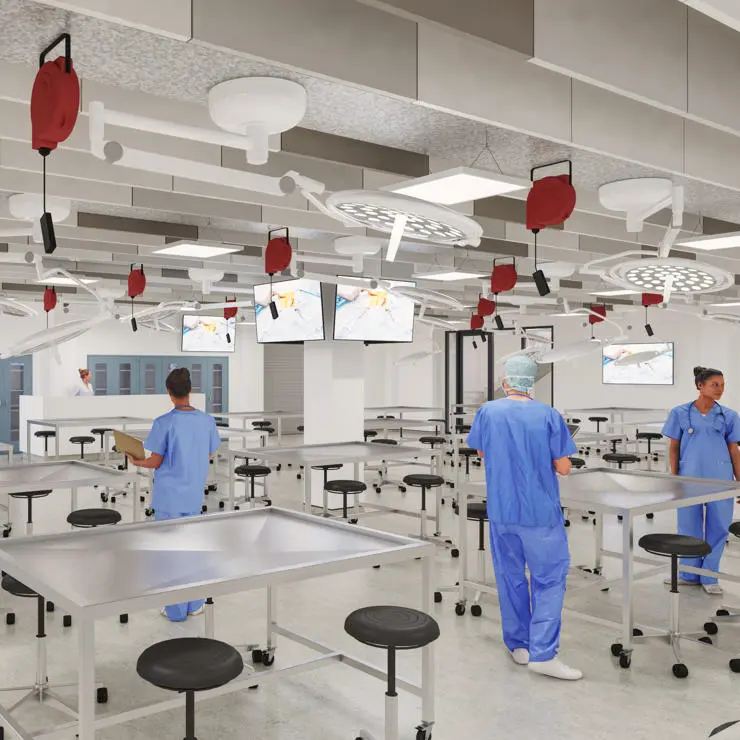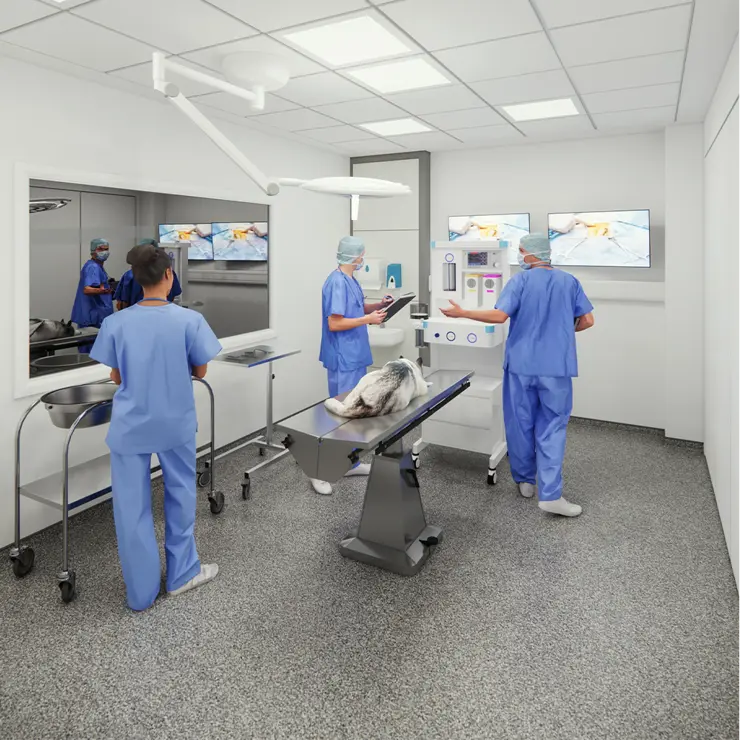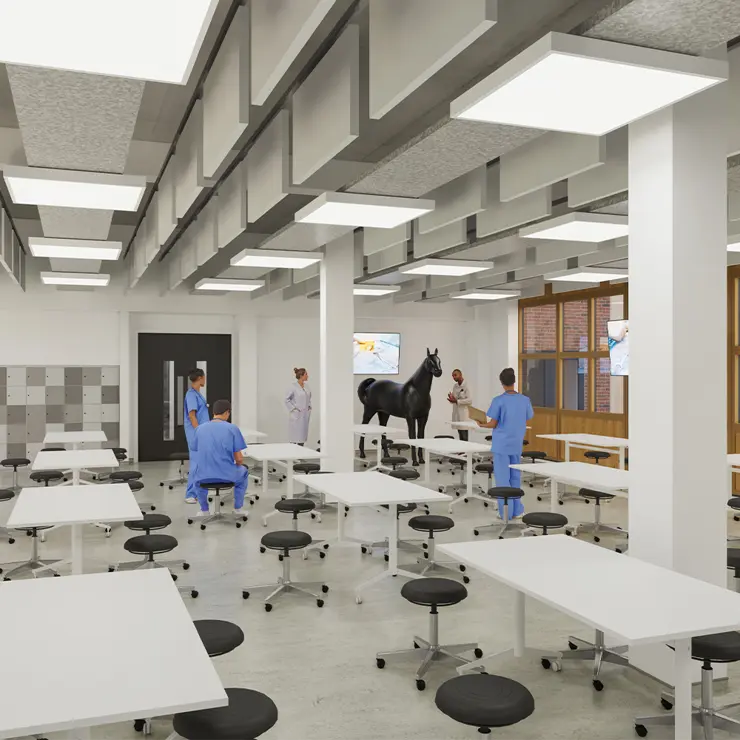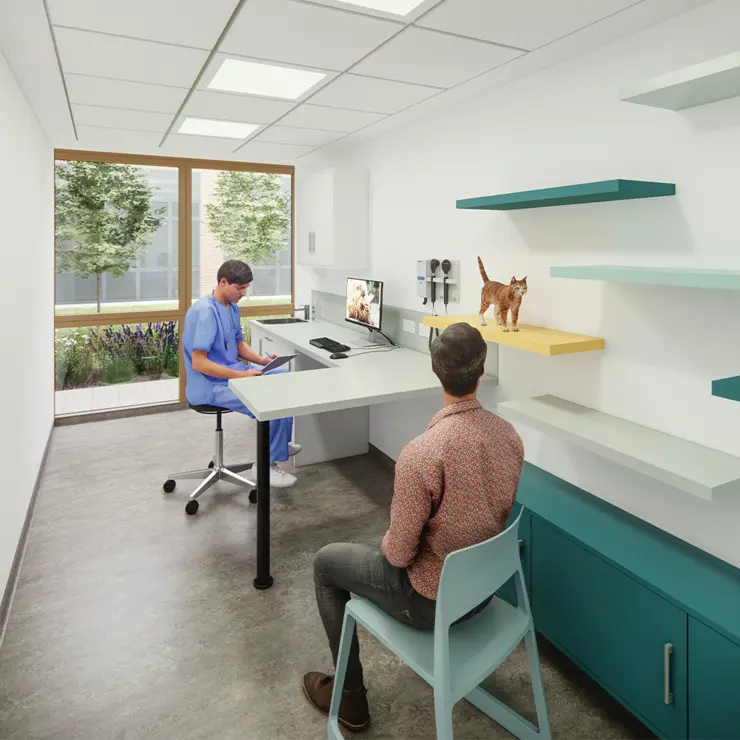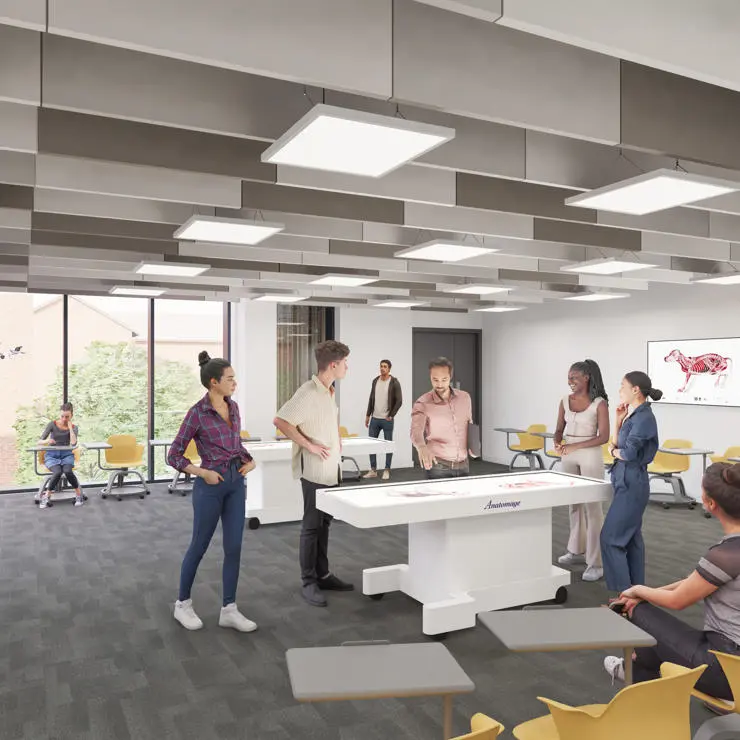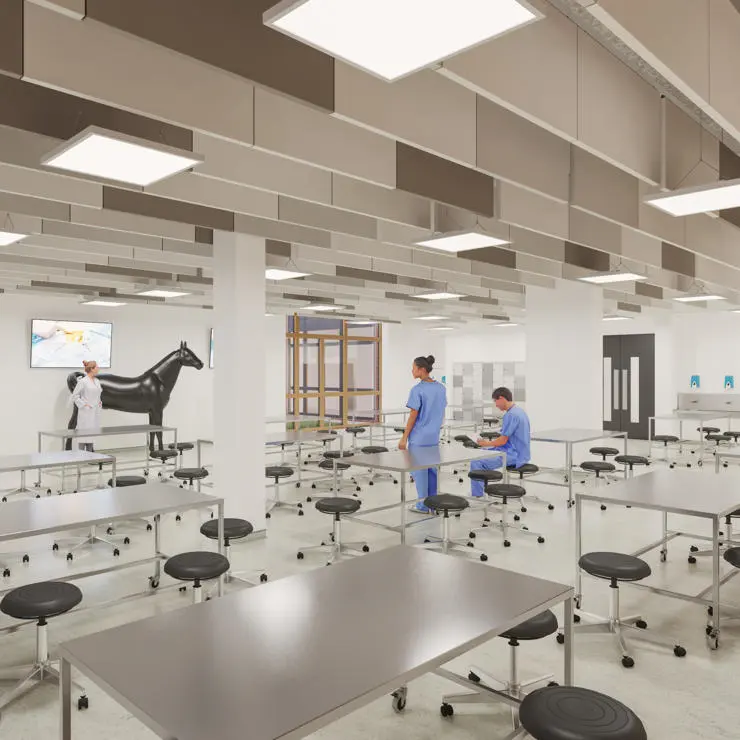Our exciting Bachelor Veterinary Medicine & Surgery (BVMS) degree has been developed to meet RCVS requirements. The BVMS course prepares you for a variety of veterinary careers.
Why study with us
- Experience an immersive and practically-focused curriculum with clinical placements from Year 1. You'll be supported with a dedicated student well-being programme.
- We offer contextual admissions. This is a reduced entry tariff for those whose life experience may have resulted in academic challenges.
- Our new way of teaching uses digital technologies to deliver innovative face-to-face teaching. This means we don’t rely on traditional lectures.
Important information
- Applications for September 2025 are now closed for UK students.
- The application deadline for September 2025 entry for international students is Friday 31 January 2025.
What you'll do
- You’ll focus on developing practical and professional veterinary skills.
- You'll learn how to deal with ethical dilemmas. Applying your analytical and reasoning skills to a variety of real-life problems.
- You’ll develop patient-centred clinical skills and communicate with colleagues and clients. Whilst learning how to improve the welfare of animals under your care.
Modules
Every effort has been made to ensure the accuracy of our published course information. However, our programmes are subject to ongoing review and development. Changing circumstances may cause alteration to, or the cancellation of, courses. Changes may be necessary to comply with the requirements of accrediting bodies or revisions to subject benchmarks statements. As well as to keep courses updated and contemporary, or as a result of student feedback. We reserve the right to make variations if we consider such action to be necessary or in the best interests of students.
Meet the team
BVMS facilities
You’ll have access to a wide range of animal handling, husbandry and clinical facilities. We work in partnership with Myerscough College & University Centre as well as local and regional organisations. We're one of the first UK universities to use Anatomage tables in our veterinary medicine teaching.
Our facilities plan
We're building a set of state-of-the-art set facilities for our veterinary medicine courses.
Useful links
How to apply for veterinary medicine (BVMS)
Thinking about applying to study veterinary medicine at the University of Central Lancashire? We have put together some guidance to help you with your application.
Veterinary medicine contextual admissions
Widening participation is at the core of our mission. We firmly believe in helping people to seize every opportunity to flourish in education.
How to become a vet
Want to know how to become a veterinary surgeon in the UK? This page will answer all your frequently asked questions (FAQs). This includes information about training, placements and what support is available.
How to become a veterinary nurse
Want to become a veterinary nurse in the UK? Find out how to become a registered vet nurse and how long it takes.
Future career as a veterinary surgeon
Graduates of the BVMS course will be able to work as UK registered veterinary surgeons. Subject to successful licensing by the RCVS.
The veterinary medicine and surgery degree will also prepare you for a range of science and research careers. As well as the opportunity for further academic study.
Entry requirements
Applications must be made by the October UCAS deadline.
Fees and funding
Scholarships and bursaries
We have a wide range of bursaries, scholarships and funds available to help support you whilst studying with us.
Select your country to see eligibility information and how to apply by selecting more info on the cards below.
Vets4Pets EMS Bursary
When studying the BVMS Veterinary Medicine Surgery course you can apply for £407 per week on an Vets4Pets EMS placement.
Find out more about Vets4Pets EMS BursaryThe Medivet Veterinary Student Success Scholarship
The Medivet Veterinary Student Success Scholarship is awarded annually to one student entering our Bachelor of Veterinary Medicine and Surgery (BVMS) course.
Find out more about The Medivet Veterinary Student Success ScholarshipVeterinary Harry Steele-Bodger Memorial Travel scholarship
The BVMS Veterinary Medicine and Surgery Scholarship offered by the BVA is available to eligible students to assist with a visit to a veterinary or agricultural school, research institute, or other course of study or project.
Find out more about Veterinary Harry Steele-Bodger Memorial Travel scholarshipThe Medivet Hardship Fund
The Medivet Hardship Fund is available to BVMS students to support essential one-off purchases or expenses incurred as part of their study.
Find out more about The Medivet Hardship Fund
The Royal College of Veterinary Surgeons (RCVS) quality assures veterinary degrees at UK vet schools by means of specific accreditation standards. Graduates from accredited schools join the RCVS Register as members. Allowing them to practise veterinary surgery in the UK.
The University of Central Lancashire and the RCVS are working together to ensure that the new degree meets these standards. And that graduates will be eligible for registration. Under the Veterinary Surgeons Act 1966, veterinary degrees must have a “recognition order” from the Privy Council before graduates can automatically be eligible for registration with the RCVS.
The Privy Council will take advice from the RCVS on this. The process takes a number of years. Full approval cannot be considered until the RCVS undertakes a formal inspection of the full course and its standards in 2028. This is when the first cohort of students will have completed their degrees.
Until that time, the School is liaising regularly with the RCVS to ensure that progress towards accreditation is maintained.
Should any unforeseen issues arise, the Veterinary Surgeons Act includes a provision to help ensure that those completing their final exams in an as-yet-unapproved degree may still be allowed to register. In that, the Privy Council may invite the RCVS to set examinations for any students attending a non-approved UK veterinary degree course. Or alternatively, appoint RCVS External Examiners to oversee the standard of the final year examinations. Students who pass the RCVS-controlled examinations would then be able to register with the RCVS and practise as veterinary surgeons in the UK. Regardless of the outcome of the degree’s accreditation process. This is in line with the arrangements for any new veterinary degree programmes.
Partner college
This course is delivered by the School of Veterinary Medicine
For information on possible changes to course information, see our essential and important course information
You can find regulations and policies relating to student life at the University of Central Lancashire on our student contract page

